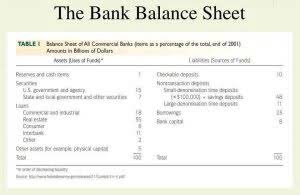
The Bookkeeping System that tracks sales makes a note when a customer makes a purchase, and the journal that records payments and reimbursements makes a note when an expense is paid. Correct Bookkeeping Systems gives firms a reliable way to gauge their performance. Additionally, it provides details on broad strategy choices and acts as a benchmark for its revenue and income targets. To sum up, after a business is established, it is imperative to invest more time and money in maintaining correct records. Much of the work that goes into bookkeeping is more administrative than anything else.

Ensuring Accurate Bookkeeping
- The information provided on this website does not, and is not intended to, constitute legal, tax or accounting advice or recommendations.
- The main goals of bookkeeping are to record and arrange financial information.
- Those interested in advanced work in the accounting field can pursue becoming a Certified Public Accountant (CPA), which requires a degree and passing a four-part exam.
- While it may be easy to confuse the two, they are not the same thing.
- Bookkeeping software has greatly evolved, transitioning from basic spreadsheet management to sophisticated accounting software that automates complex processes.
Accountants are skilled professionals who prepare a diverse range of financial statements to provide a comprehensive normal balance view of a company’s financial health. Bookkeepers play an essential role in the financial health of a business. They meticulously handle the recording and maintaining of financial information, ensuring every penny is accounted for. The demand for qualified employees is another area where accounting and bookkeeper careers are very different. According to BLS, the demand for bookkeepers is predicted to fall by 6% between 2022 and 2032 as financial software becomes more advanced.
Bookkeeping Vs. Accounting
- Unlike accounting, bookkeeping zeroes in on the administrative side of a business’s financial past and present.
- It is used mainly by small businesses, which have minimal transactions.
- Accountants will remain in demand because they can generally offer insights that a computer cannot match.
- The records will mainly consist of the cash flowing into and out of the business.
- Free up time in your firm all year by contracting monthly bookkeeping tasks to our platform.
- Each one of these is designed to track specific types of business transactions.
Now that you have a better understanding of bookkeeping, you may be wondering if it’s something you want to take on yourself or with the help of a professional. When making this decision, there are two things you should keep in mind. Now that you’ve got a firm grasp on the basics of bookkeeping, let’s take a deeper dive into how to practice good bookkeeping. There’s no one-size-fits-all answer to efficient bookkeeping, but there are universal standards. The following four bookkeeping practices can help you stay on top of your business finances. A ledger contains a chart of accounts, which is a list of all the names and number of accounts in the Law Firm Accounts Receivable Management ledger.
To record the transactions

An accountant usually generates the trial balance to see where your business stands and how well your books are balanced. Imbalances between debits and credits are easy to spot on the trial balance. Any miscalculated or wrongly-transcribed journal entry in the ledger can cause an incorrect trial balance.

Bookkeeping is the process of collecting and organizing data on all of your business’s financial transactions. This includes sale invoices, payroll ledgers, accounts receivable, assets, and liabilities. Small businesses must maintain types of bookkeeping an accurate record of purchases, sales, billing, and invoicing. Manual bookkeeping might suffice for businesses with a lower volume of transactions. They often use simple spreadsheets to track income, expenses, and calculate sales tax.

A potential disadvantage of the double-entry bookkeeping system is its complexity. In addition, any error in recording transactions can result in a mismatch of assets and liabilities. This balancing act gets more difficult as the volume and complexity of transactions increase. Furthermore, the system’s complexity may also require specialized accounting software, which adds an additional cost.
- Bookkeeping is the process of recording and collecting all financial transactions of a business.
- If you’re using an actual cash box for this, it’s best to keep track of each entry.
- Intuit Inc. does not warrant that the material contained herein will continue to be accurate nor that it is completely free of errors when published.
- Standardized bookkeeping systems aid in preparing required financial statements and in demonstrating compliance to regulatory bodies and investors.
- It is a financial report that tracks incoming and outgoing cash in your business.
- With the advancement of technology, various kinds of accounting software and apps have come to the bookkeepers’ aid.
- By staying up to date with your bookkeeping throughout the year, you can help alleviate some of the stress that comes with filing your taxes.
In the single-entry system of bookkeeping, the bookkeeper records one entry for each financial transaction or activity. The double-entry system of bookkeeping is common in accounting software programs like QuickBooks. With this method, bookkeepers record transactions under expense or income. Then they create a second entry to classify the transaction on the appropriate account.

